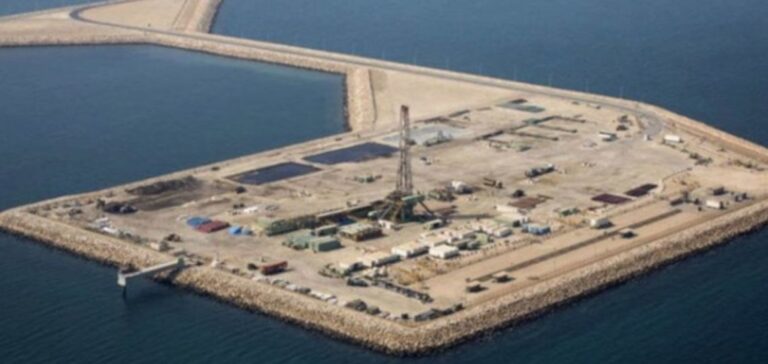Iran will “assert its rights” over a gas field also claimed by Saudi Arabia and Kuwait, in the absence of a “willingness to cooperate” on the part of these two countries, Iran’s oil minister said on Sunday.
Iran says it is seeking a negotiating path in the gas field dispute
“Iran will assert its rights and interests regarding the exploitation and exploration” of the field “if there is no willingness for understanding and cooperation”, said the minister, Javad Owji, quoted by Iran’s official Shana news agency.
With estimated reserves of 220 billion cubic meters, the field, known as Arash in Iran and Dorra in Kuwait and Saudi Arabia, has been the subject of a long-running dispute between the three countries. An agreement on joint exploitation was signed in March 2022 between Kuwait and Saudi Arabia, and described as “illegal” by Tehran. At the end of June, Iran announced that its national oil company was preparing to “start drilling in the joint Arash field”, and in early July Kuwait called on Tehran to come to the negotiating table.
On Thursday, Kuwait’s Oil Minister Saad al-Barrak, quoted by the SkyNews Arabia television channel, said that his country would begin “drilling and production” at the gas field – without waiting for a possible agreement with Iran on the demarcation lines.
“Iran will not tolerate any violation of its rights”, said the Iranian Oil Minister on Sunday, assuring that Iran had sought “the path of negotiation” with its neighbors.
The dispute over the field dates back to the 1960s, when Kuwait granted a concession at Dorra to Anglo-Iranian Petroleum, which later became part of BP, while Iran gave a concession to Royal Dutch/Shell. The two concessions overlap in part of the gas field. The two countries have been negotiating for years to resolve this disagreement, to no avail. In 2001, Iran began drilling in the field. This prompted Kuwait and Saudi Arabia to definitively fix their maritime border and agree to jointly exploit the Dorra field.






















